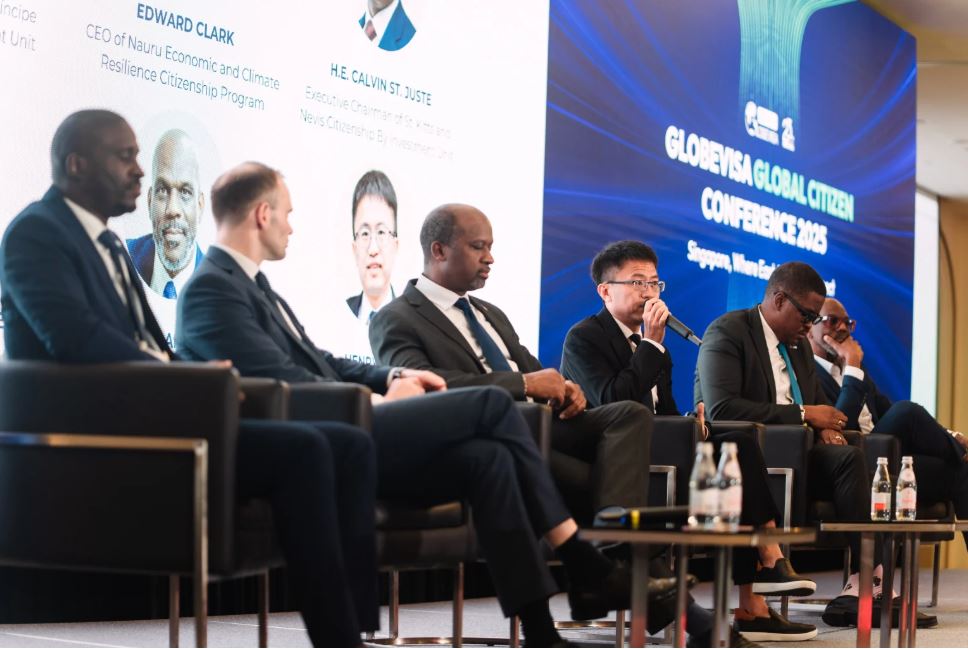When Henry Fan took the stage in Singapore at GGCC 2025, the room wasn’t just hearing a keynote—it was being handed a 20-year operating system for global mobility. Vision2045 isn’t a campaign name; it’s a commitment to treat residency and citizenship by investment like any other institutional asset class: diversified, governed, and executed with precision.
He began with the problem every sophisticated family office knows too well: fragmented programs, inconsistent standards, and opaque processing. Then he drew the new map. Under Vision2045, clients won’t chase scattered options; they’ll access a curated, multi-program “supermarket” matched to their capital, timelines, dependents, and exit routes. Files won’t move by email chains and guesswork; they’ll run through AI-driven onboarding, automated document checks, and real-time status that shortens cycle times while reducing error. And reputation—so often an afterthought—sits at the core, with standardized due diligence and auditable trails designed to protect visa-free access for decades, not months.
He described three pillars like a triad of risk controls. First, Global Reach & Accessibility: expanding coverage across mature and emerging markets so complex profiles find precise fit without compromising compliance. Second, Innovation & AI Empowerment: a dedicated AI center embedding automation into KYC/AML, file quality, and milestone reporting, raising both speed and accuracy. Third, Partnership & Sustainability: public–private collaboration that aligns governments, developers, and institutions to build programs with longevity and shared value—because durable access requires durable design.
Around the conference halls, the signals were unmistakable. Policy, technology, and mobility are converging: ESG-linked migration is no longer a fringe idea; digital identity is moving from concept to infrastructure; AI in compliance is shifting from promise to baseline. Decision-makers from ministries, banks, and program authorities were in the same room—reducing the distance between an investor’s intent and a regulator’s green light. For HNW families, the outcome is practical: clearer routes for education and succession planning; cleaner jurisdictional diversification for risk; and better foresight on regulatory direction to inform capital allocation.
Why should principals care? Because Vision2045 converts mobility from a transactional purchase into part of a long-term wealth framework. It mitigates jurisdictional risk without sacrificing speed. It aligns mobility with estate structures, education pathways, and asset protection. And it safeguards reputation—your most valuable currency—through institutional processes that stand up to scrutiny.
This is where Globalia, as a partner of Globevisa Group, steps in. We start with a private strategy workshop to define objectives—mobility, lifestyle, tax posture, succession—and translate them into a timed, costed plan. We engineer diligence and files end-to-end: KYC/AML, source-of-funds narratives, document automation, and submissions aligned to Globevisa’s standards. We coordinate banking and cross-border flows with trusted institutions, then manage execution: milestone reporting, renewals, re-entry rules, and post-landing support. As regulations evolve, we review and rebalance your mobility stack—just as you would any other portfolio exposure.
What you receive is not a brochure of options but a custom mobility plan with clear costs, timelines, and responsibilities—implemented on Vision2045 infrastructure that’s built for scale, governance, and longevity.
If your family is ready to move from opportunistic applications to an institutional-grade strategy, request a confidential consultation with Globalia. We’ll map your mobility, education, and asset-protection goals to an execution-ready plan that compounds in value over the next two decades.


